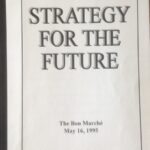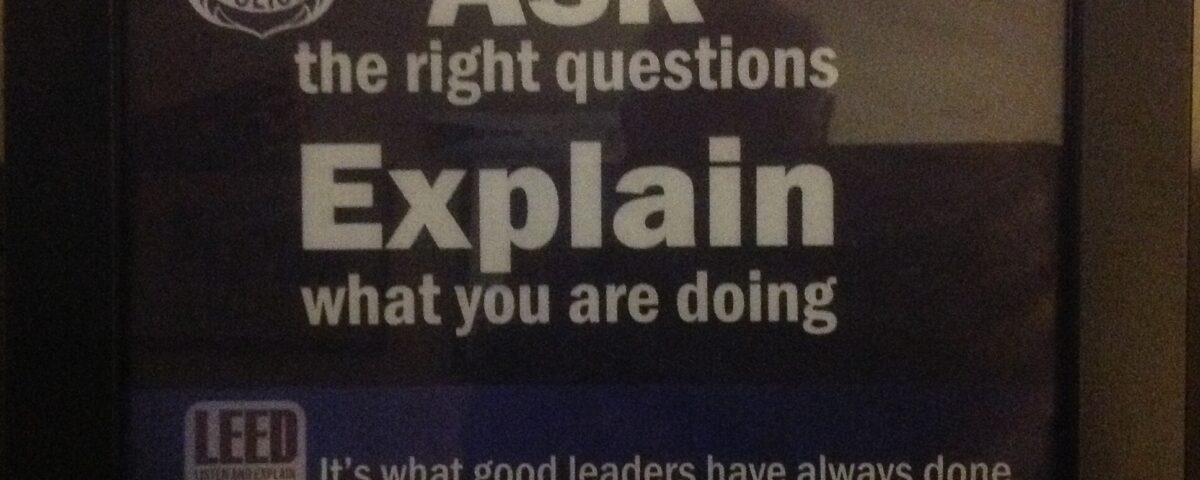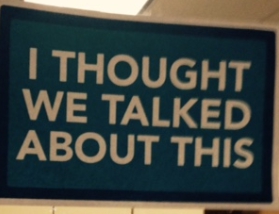
How Will Your Organization Handle Disruption?
May 27, 2015
Coming Up Next…
June 30, 2015GOING FROM BEING THE CHEAPEST TO BEING THE SMARTEST –
HOW MUCH DOES IT COST TO CHANGE AN ORGANIZATIONAL CULTURE?
CHEAPEST: Relating to Low Cost or comparatively inexpensive,
Of, or considered of, small value or poor quality.
SMARTEST: Having or showing intelligence, bright.
Canny and shrewd in dealings with others.
Energetic or quick in movement.
We are at the end of the business world’s love affair with “Continuous Improvement”. We now have made everything into a commodity, and the only real way to evolve in the new world, is to create a culture that can be canny and shrewd in problem solving, and also energetic and quickly adaptable – flexible and open to the changing environment. We have to get Smart about it.
Smarter Can include an element of “Continuous Improvement”, but the focus of being smart is to not just provide incremental improvement, but to understand that this fast-paced new environment will also require being good at fast-paced change. Being intelligent, as one of my favorite song lyrics states insists that you: “Know when to hold them – and – Know when to fold them, and simply walk away.”
Changing Cultures may seem like a lot of work and risk – but I am going to give you 3 simple activities that I believe will modify/change your culture in 6 months to 1 year, with very little cost:
#1: WHAT YOU MEASURE IS WHAT YOU GET
In most organizations, the Dashboard of financial ratios gets all of the attention, and this myopic focus on numbers takes a concept like Continuous Improvement and makes it nothing more that an expense control initiative. So, the 1st activity is to create an employee Survey that will create a culture of “Smart People” who are empowered to suggest new ways to solve a continuous flow of issues and problems.
These 11 questions or indicators define a culture that supports the employees of a Smart organization:
- The things we accomplish positively impact our core Mission.
- Our entire organization frequently celebrates our organizational successes.
- I am regularly asked to give my opinions and thoughts on important issues confronting our organization.
- When I offer my opinions, I believe people are trying to understand my point of view.
- I am comfortable with asking questions and offering my opinion.
- My supervisor regularly discusses my role/job and I receive understandable feedback on my performance.
- I work with talented individuals who love to collaborate.
- We use technology effectively and we receive training and support in using the technology.
- My organization allows a realistic balance in using my personal social media.
- My organization has a clear and consistent process for how important decisions are made.
- Our employee reward program is fair and aligned with my organizational role.
#2: WHAT MANAGEMENT FOCUSES ON, DEFINES THE CULTURE
Think how different your organizational culture would be if it held all management accountable for getting high scores on these 11 questions… I suggest using a 1-5 scale, with 5 being outstanding and 1 being unacceptable. I can tell you that if your scores average 4.5 and above you will have a very smart culture. If the scores run 4-4.5 you will have a uneven culture with a few people working at it and others not. But the great part of this system is that every manager at every level will have their own dashboard, to define how “ALL-IN” they are at supporting a “Smart Culture”. If the scores are below a 4.0 average, the organization is going to struggle to adapt to the dynamic waters of our new business environment.
#3: USE OLD SCHOOL SIGNAGE TO DEFINE –
“WE STRIVE TO BE THE SMARTEST” IN OUR BUSINESS.
Being “THE SMARTEST IN THE BUSINESS” is a product of rewarding employees that offer up great new ideas and solutions. They will give you a great score on the employee reward system question and they will serve as the passion and energy source to engage fellow employees in this culture.
WHAT DOES THIS SYSTEM COST?
This is a very simple cultural change concept that WILL COST YOU ALMOST NO CASH…
Cultures are not changed by spending a lot on money – they change because all employees are “ALL-IN” at behaving with predictable context and focus. This system focuses on asking the right questions, focusing all management on a dashboard of human value, and visually rewards employees that give their unique ideas and passion to the organization.





